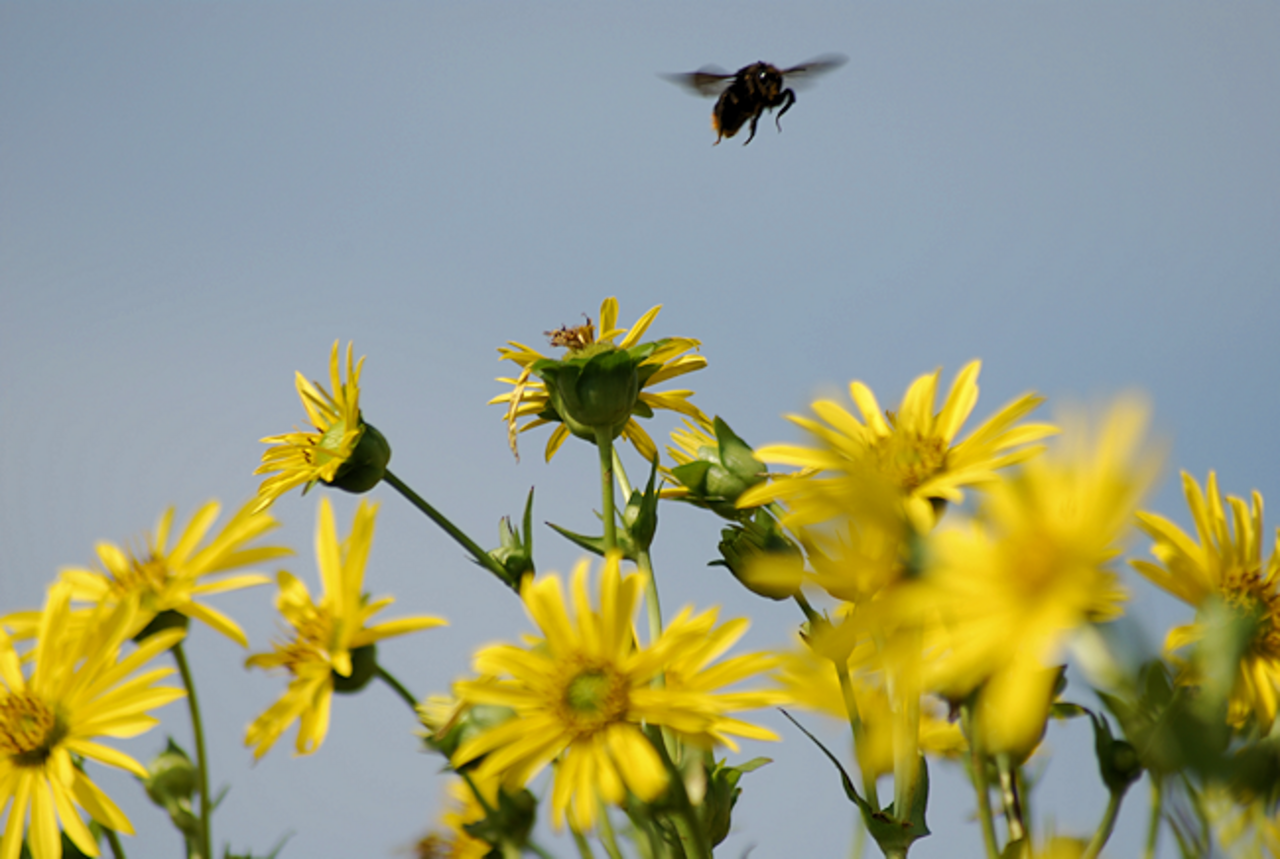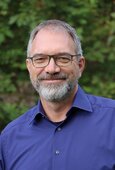Project
Facilitating insects in agricultural landscapes through renewable resources

FInAL – Facilitating insects in agricultural landscapes through integration of renewable resources into cultivation systems – a scientifically supported pilot and demonstration project in landscape laboratories
Intensive agriculture is considered as a major cause of the decline of insect diversity and biomass in Germany. Within the frame of the national action programme for the conservation of insects, FInAL will therefore establish Landscape Laboratories in representative agricultural landscapes of Germany where we will develop, demonstrate and evaluate innovative measures for facilitating insects through integrated cultivation of renewable resources in a landscape context.
Background and Objective
The aim of FInAL is to demonstrate how diversity, biomass and functionality of insects can be enhanced in agricultural landscapes, especially through integration of renewable resources. We consistently adopt a landscape approach based on regionalised guiding principles (“Leitbilder”) that encompasses both agricultural land and non-cultivated areas and involves the participation of stakeholders. The Landscape Laboratories, i.e. the landscape sections where measures for facilitating insects will be established, will be investigated with respect to their initial state, land-use options, and effects of the measures on different features, primarily in relation to incidence and functionality (e.g. in integrated plant protection) of various groups of insects.
Target Group
farmers
farm advisors
extension services
communal authorities
NGOs
policy makers
scientists
Approach
The term Landscape Laboratory denotes a section of an agricultural landscape in which innovative measures for facilitating insects in cultivation systems are conducted. This involves a spatially extensive approach, i.e. the whole area of the Landscape Laboratory constitutes the object of study and, consequently, is treated with specific measures in its entirety. Therefore, a Landscape Laboratory is to comprise both cropland and grassland as well as those parts that are not under agricultural production. The size of a Landscape Laboratory is approximately 3 x 3 km in order to prove the effectiveness of the established measures with respect to occurrence of insects on the landscape scale. The effects of the measures on various groups of insects, ecosystem services of insects and soils, landscape structure, agricultural production and integrated plant protection will be investigated through monitoring at the start (baseline) and during the transition phase of the landscape and through simultaneous surveys of control areas in the surroundings of the Landscape Laboratories. For this purpose, we will develop specific evaluation methods. The monitoring will focus on insects and ecosystem services, but also consider all of the four domains of sustainability – ecology/biodiversity, economy, society and politics in an interdisciplinary way in order to allow for a comprehensive evaluation of the measures in terms of sustainability. The selection of the Landscape Laboratories will particularly consider landscape types with high importance for the variety of agricultural landscapes in Germany.
In this project, the choice and implementation of suitable measures will be based on a co-design process involving stakeholders. Prior to the establishment in the Laboratories, the measures will be pre-evaluated at test sites ( “Maßnahmenwerkstätten”), if necessary. The results from the Landscape Laboratories will be summarised and assessed in an integrative way with respect to effectiveness of measures, acceptance by practitioners, transferability to other agricultural landscapes and options for schemes of agricultural policies.
Our Research Questions
FInAL aims to develop sustainable cultivation systems that facilitate and support insects while being economically viable and acceptable by each group of interest. A special focus lies on integration of renewable resources and implementation of integrated pest management.
In a co-design-process that incorporates farmers and researchers, FInAL develops innovative concepts and measures, that are implemented and evaluated in three agricultural landscapes (= Landscape Laboratories).
FInAL wants to demonstrate that a guided transformation of whole landscapes towards insect friendly agriculture is possible. In the ten-year spanning transformation process there is plenty of time for effects to unfold and to enable a comprehensive comparison with conventionally managed agricultural areas.
Preliminary Results
Newsletter:
www.final-projekt.de/aktuelles/archiv-download/
Links and Downloads
Thünen-Contact

Involved Thünen-Partners
- Beutnagel, HeinrichBW Institute of Farm Economics
- Häfner, BastianBD Institute of Biodiversity
- Holzhauer, StephanieBD Institute of Biodiversity
- Pickenbrock, PiaBD Institute of Biodiversity
- Plaas, ElkeBW Institute of Farm Economics
- Schrader, StefanBD Institute of Biodiversity
- Thiele, JanBD Institute of Biodiversity
- Elke Plaas, Institute of Farm Economics
Involved external Thünen-Partners
- Julius Kühn-Institut - Bundesforschungsinstitut für Kulturpflanzen (JKI)
(Quedlinburg, Braunschweig, Groß Lüsewitz, Kleinmachnow, Deutschland) - Leibniz-Zentrum für Agrarlandschaftsforschung (ZALF) e.V.
(Müncheberg, Deutschland) - Landwirtschaftskammer Niedersachsen
(Oldenburg, Uelzen, Hannover, Deutschland) - (Bayerische) Landesanstalt für Landwirtschaft (LfL)
(Freising, Poing, Deutschland)
Funding Body
-
Fachagentur Nachwachsende Rohstoffe e.V. (FNR)
(national, öffentlich)
Duration
10.2018 - 9.2025
More Information
Project funding number: 22012018
Funding program: FNR
Project status:
ongoing

![[Translate to English:] Logo des Bundesministerium für Ernährung und Landwirtschaft](/media/allgemein/logos/BMEL_Logo.svg)